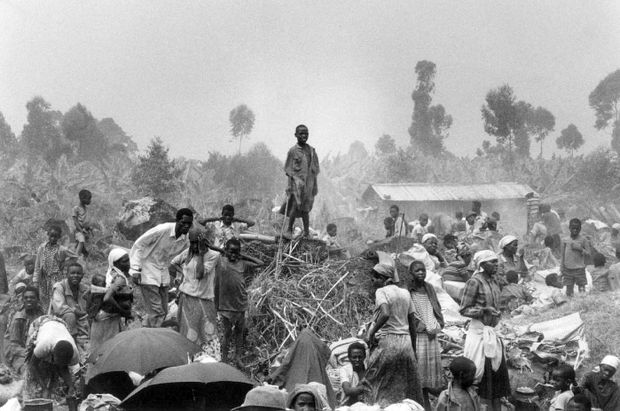What happened to Hutu refugees who managed to escape RPA’s 05/02/1997 killing on the Ulindi river.
Survivors of the Ulindi River massacre headed in the direction of Kindu town. They were moving through the forest in small groups of 50 to 100 people, wounded, tired, hungry, sick and weak, hoping to reach Kigulube Village, as they heard that UNHCR had opened a branch there to help them.
13 February 1997 – According to UN High Commissioner for Human Rights’ report of 2010, Paul Kagame’s Rwandan Patriotic Army (RPA) soldiers attacked and killed 180 of them in the town of Mpwe, on the road leading to Kigulube village, in the evening of 13 February 1997. “After gathering the refugees together, […] they led them in small groups into a house where they killed them. Those who tried to escape before they were led into the house were shot dead. The bodies of the victims were for the most part buried in a mass grave behind the house”.

“On 15 February 1997, APR units killed other 200 Hutu refugees at two sites, four and seven kilometres from Kigulube. In one of those attacks, a group of around sixty Hutu refugees were imprisoned in a house which was then set on fire by APR. The victims’ bodies were thrown into mass graves”.
The report states that “despite orders given to villagers to recover the bodies of the refugees, international NGOs and local witnesses observed many corpses and skeletons on the roads around Kigulube, as well as personal effects that belonged to the refugees. On several occasions, international NGO personnel witnessed the clean-up operations between Shabunda and Kigulube and observed the presence of mass graves in several villages and along the roadside. The total number of victims is hard to ascertain but runs to several hundred, and could even exceed one thousand”.
From the UN OHCHR Report Of The Mapping Exercise Documenting The Most Serious Violations Of Human Rights And International Humanitarian Law Committed Within The Territory Of The Democratic Republic Of The Congo Between March 1993 And June 2003, 2010, Geneva: Office of the United Nations High Commissioner for Human Rights (web version)
